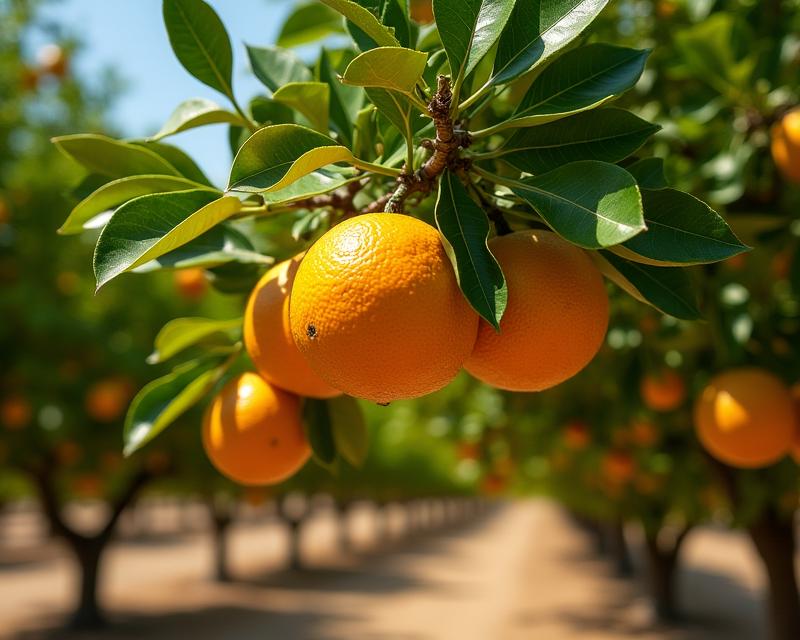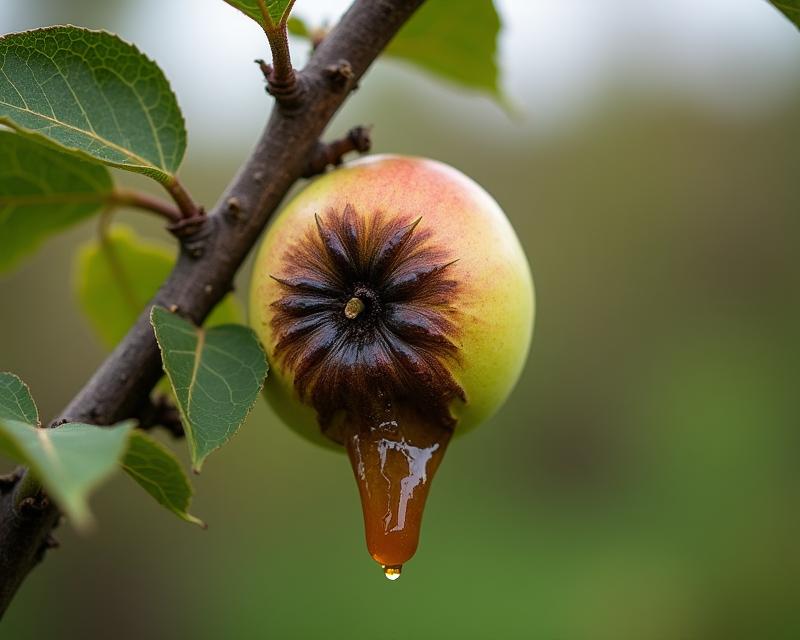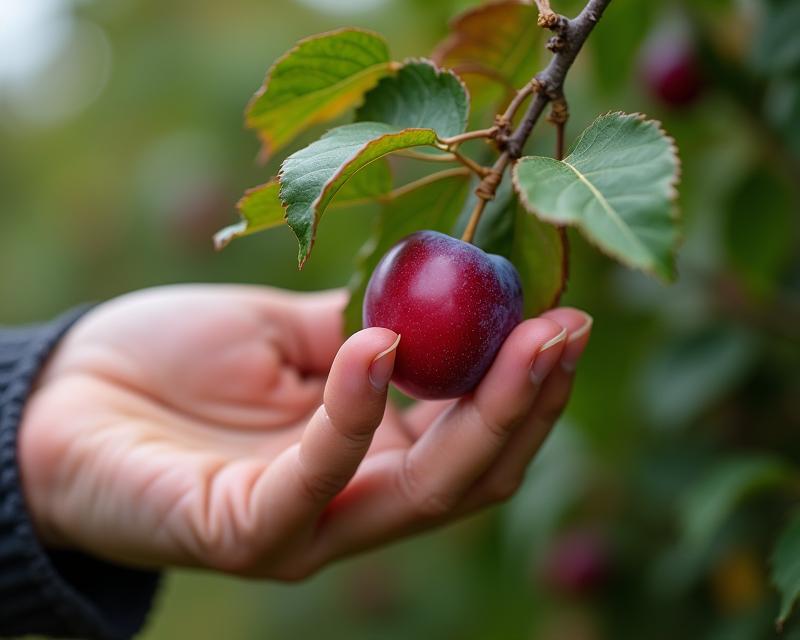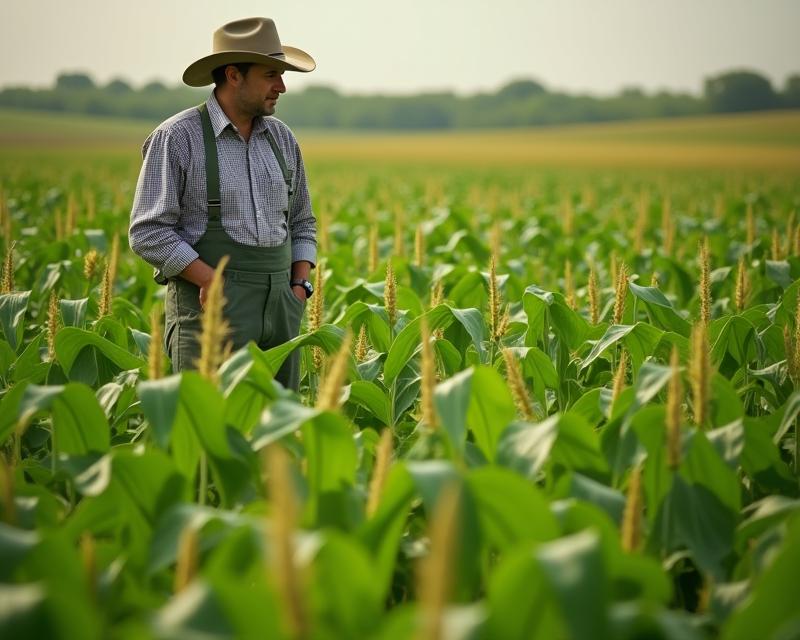Corn Borer Battle: Natural Solutions for Healthy Corn
Publish in Crops el 04/07/2025 16:01
Corn Borer: A Common Threat to Corn Crops
Corn borers are a significant pest for corn farmers, causing damage to stalks, ears, and ultimately, yield. These sneaky pests are the larvae of moths that bore into the corn plant, feeding on the tissues inside. Understanding how to manage corn borers effectively is crucial for a successful harvest. Ignoring them can lead to substantial crop losses, impacting both profitability and food security.
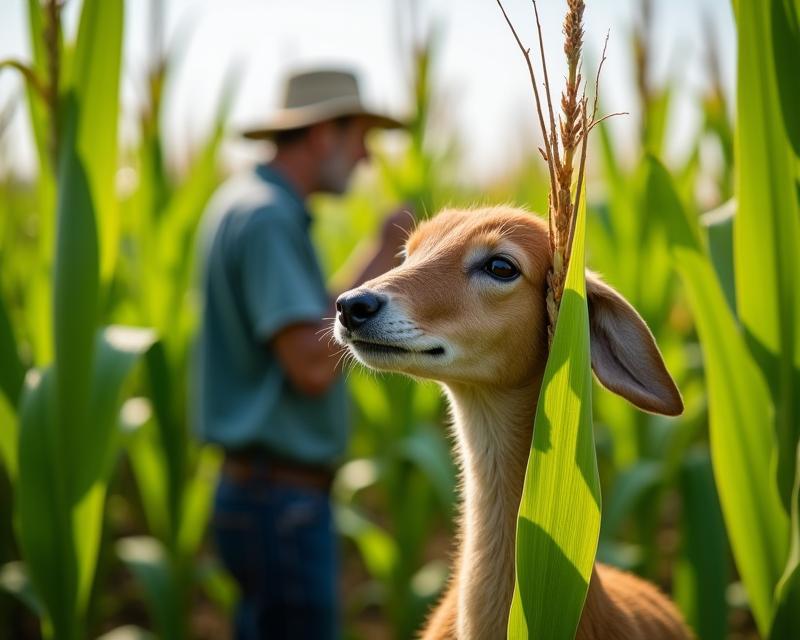
Understanding the Enemy
The corn earworm and southwestern corn borer are the most common culprits. The larvae are cylindrical, ranging in color from cream to brown, and can be found inside the corn stalks and ears. Early detection is key! Look for wilting leaves, sawdust-like frass (insect droppings) near the stalks, and damaged ears. Regular scouting of your fields is essential, especially during the growing season.
Integrated Pest Management (IPM): A Holistic Approach
Instead of relying solely on pesticides, an Integrated Pest Management (IPM) approach is the most sustainable and effective way to control corn borers. IPM combines various strategies to minimize pest damage while protecting the environment. Here's a breakdown of key components:
- Natural Predators: Encourage beneficial insects like parasitic wasps and predatory beetles. These natural enemies lay their eggs inside the corn borer larvae, effectively killing them. Avoid broad-spectrum insecticides that can harm these beneficial insects.
- Resistant Hybrids: Plant corn varieties bred for corn borer resistance. These hybrids have natural defenses that make them less susceptible to attack. Check with your seed supplier for recommendations based on your region.
- Cultural Controls: Implement practices that make your corn crop less attractive to borers. This includes crop rotation (avoid planting corn in the same field year after year), timely planting, and proper sanitation (removing crop residue after harvest).
- Monitoring & Thresholds: Regularly scout your fields to monitor corn borer populations. Only apply insecticides when pest numbers reach a predetermined threshold – the point where the damage justifies intervention.
- Biological Control: Consider using *Bacillus thuringiensis* (Bt), a naturally occurring bacterium that is toxic to corn borer larvae. Bt is a biological insecticide that is relatively safe for beneficial insects and the environment.
Sustainable Farming for a Healthy Harvest
By embracing IPM strategies, you can effectively manage corn borers while promoting a healthier and more sustainable farming system. This approach reduces reliance on synthetic pesticides, protects beneficial insects, and minimizes environmental impact. Remember, a proactive and observant approach is the best defense against these destructive pests. A healthy crop is a productive crop, and IPM is the key to achieving both!
